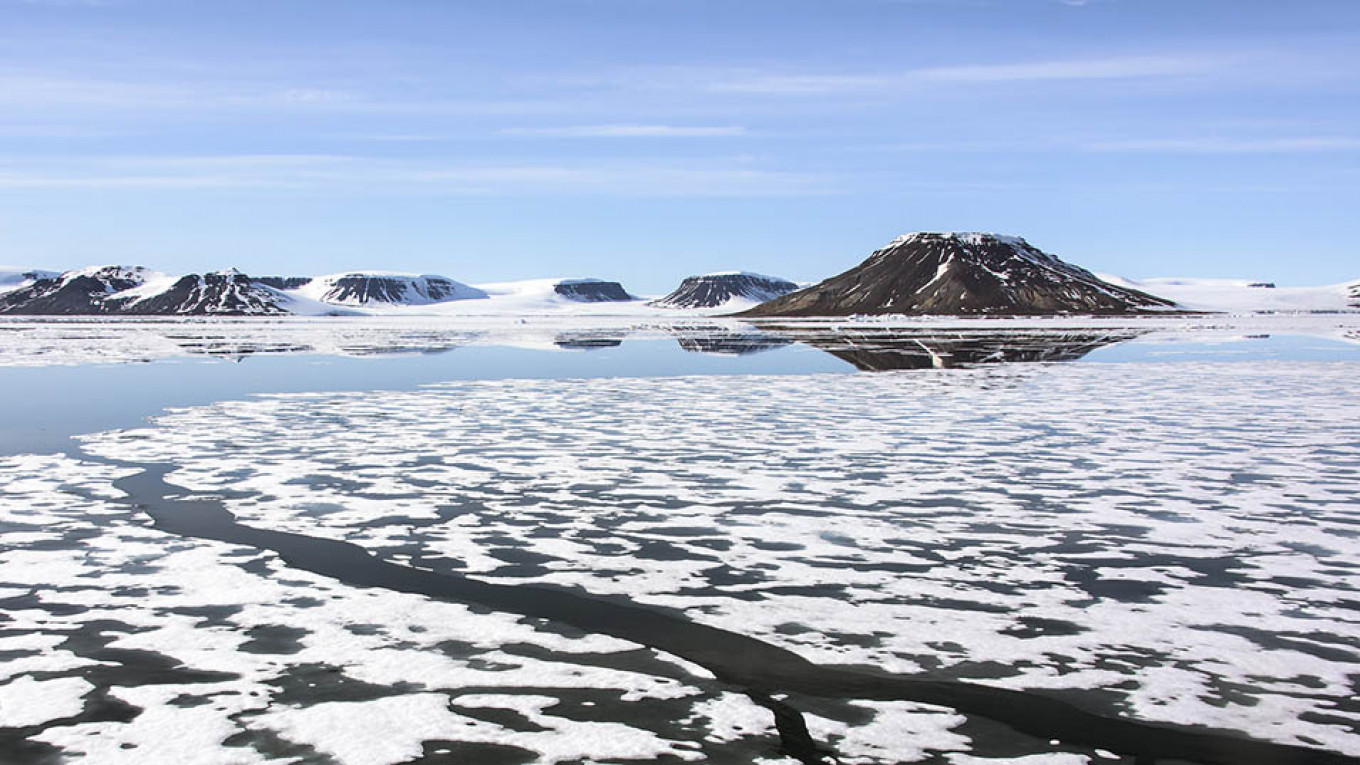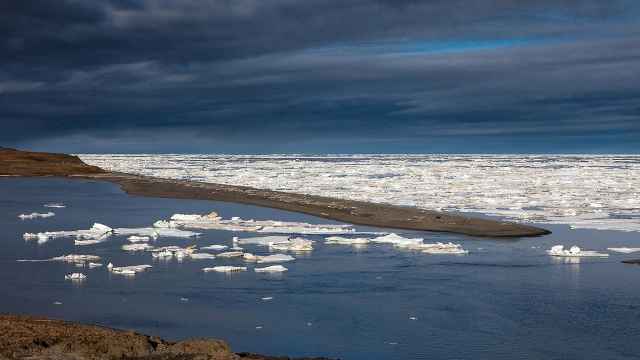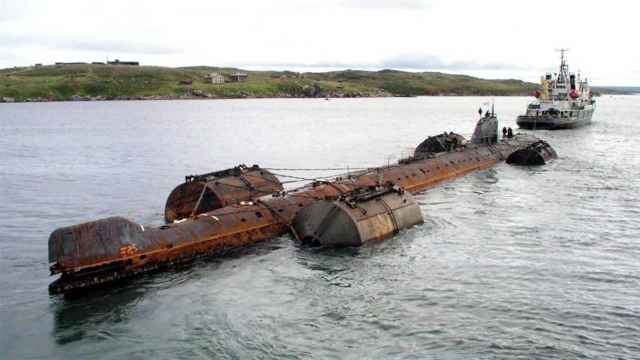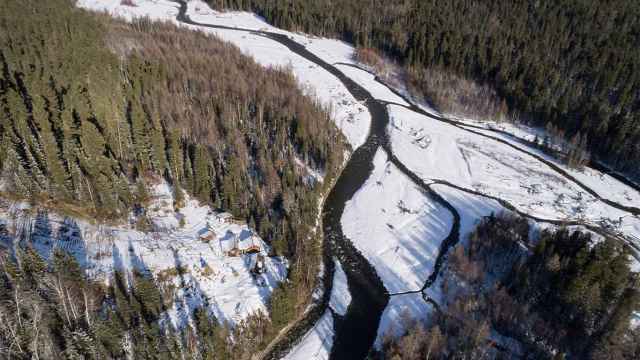The Russian military has officially confirmed the discovery of five new Arctic islands which have emerged as climate change accelerates glacial melting.
The new islands were discovered by a student onboard a Russian Navy research vessel that conducted a voyage through Arctic waters in late 2016. Russia has been increasing its military and commercial presence in the Arctic as the northern region becomes more accessible.
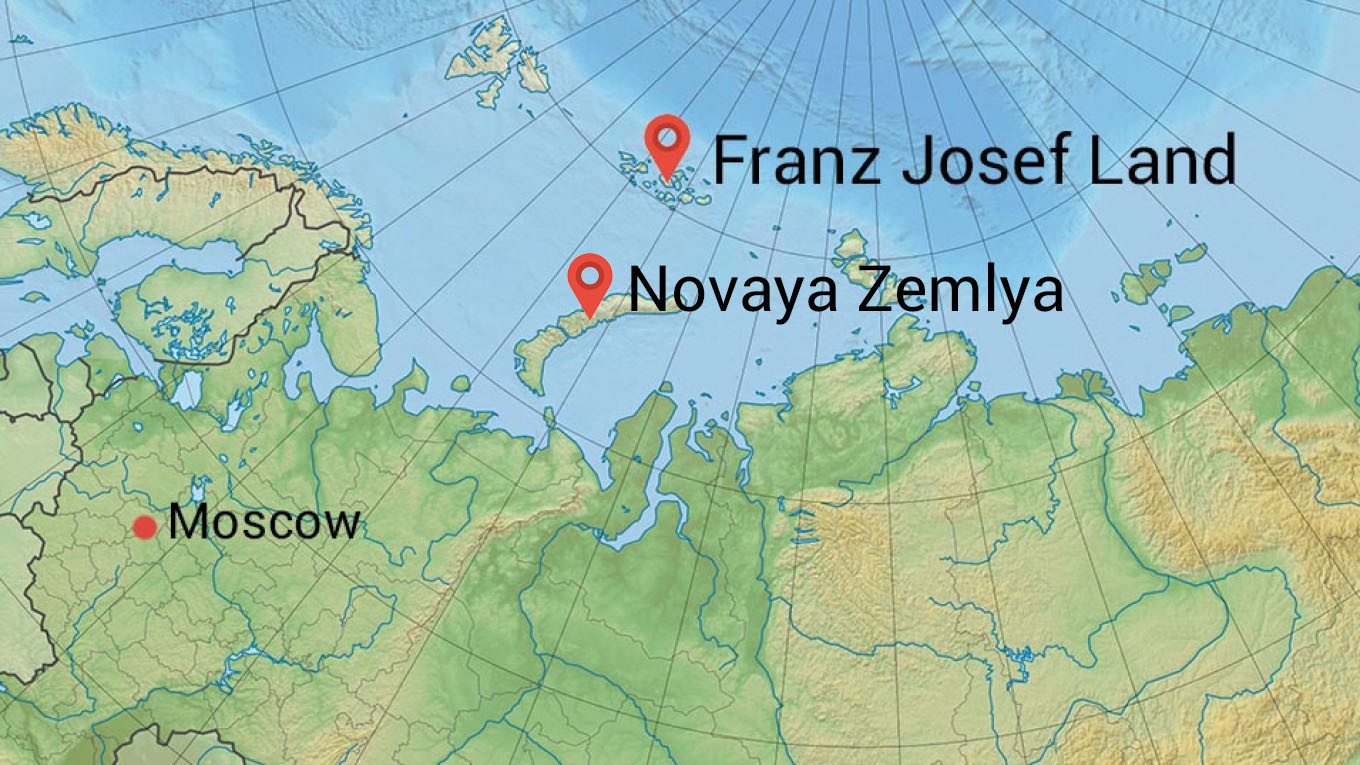
The five islands ranging from 900 square meters to 54,500 square meters in size were discovered near the Nansen glacier off the coast of the Novaya Zemlya archipelago, the Defense Ministry announced Tuesday.
“A topographic survey has been conducted on the new islands,” the military said. “They’ve been described in detail and photographed.”
It credited Marina Migunova, a St. Petersburg-based maritime and inland shipping student, with making the initial discovery three years ago. Migunova is now an engineer at the Navy’s Northern Fleet research vessel that carried out the 2016 Arctic voyage, the Admiral Makarov State University of Maritime and Inland Shipping said.
The university said it has contributed to the discovery of more than 30 new islands, capes and bays in the Franz Josef Land and Novaya Zemlya archipelagos using remote sensing data in 2015-18.
New islands are added to the map “only after the necessary survey work is carried out on the ground,” the university said. “That’s also when an official announcement of the discovery is made.”
The World Meteorological Organization has said that temperatures in parts of Arctic Russia around Novaya Zemlya are now 6 to 7 degrees Celsius higher than the 1961-90 average, while temperatures worldwide are closer to 1 degree Celsius above that average.
A Message from The Moscow Times:
Dear readers,
We are facing unprecedented challenges. Russia's Prosecutor General's Office has designated The Moscow Times as an "undesirable" organization, criminalizing our work and putting our staff at risk of prosecution. This follows our earlier unjust labeling as a "foreign agent."
These actions are direct attempts to silence independent journalism in Russia. The authorities claim our work "discredits the decisions of the Russian leadership." We see things differently: we strive to provide accurate, unbiased reporting on Russia.
We, the journalists of The Moscow Times, refuse to be silenced. But to continue our work, we need your help.
Your support, no matter how small, makes a world of difference. If you can, please support us monthly starting from just $2. It's quick to set up, and every contribution makes a significant impact.
By supporting The Moscow Times, you're defending open, independent journalism in the face of repression. Thank you for standing with us.
Remind me later.



